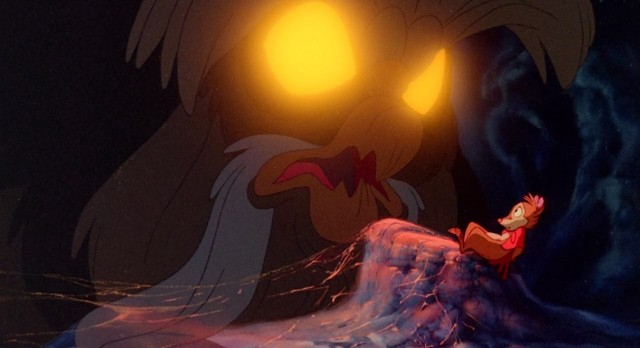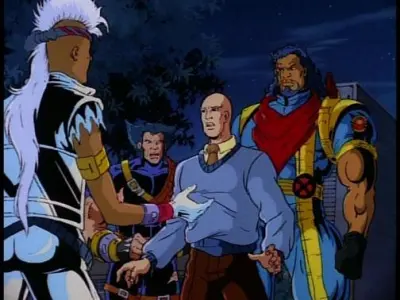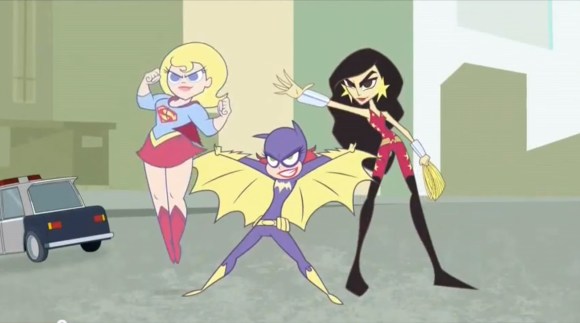It’s 2014, and I keep asking myself: Why aren’t we farther than this? I don’t just mean the lack of space colonization, sarcastic robots, and hoverboards that films promised me would be here by now. I mean representation in pop culture and storytelling. Seems we should be better about that, especially when the explanations for why we’re not all sound pretty crap. “The public might not be ready for it.” “It would take more time and effort than we can afford.” “We need a good reason to do it.” Shut up. Those reasons were weak decades ago and they’re weak today.
There are also all the trolls who exist on the internet and/or speak their ridiculous beliefs in the real world. Two months ago in a comic shop I overheard a customer complain that casting Peter Dinklage as Bolivar Trask in X-Men: Days of Future Past altered the character because now he probably just hated mutants due to “a Napoleon complex” (never mind that Hugh Jackman, at 6’2″, plays Wolverine, who was created to be 5’3″ and to this day is usually drawn to be 5’8″ at most in the mainstream comics). When Thor was hitting theaters, some folks complained that Idris Elba could not play Heimdall, because apparently aliens who inspire myth cannot have dark skin. Yet they didn’t mind a guy with dirty blonde hair playing a thunder god who in mythology (if not Marvel Comics) is said to have red hair. A British actor played Superman, who is often considered an icon of American idealism, yet I did not see the same level of anger about it that I saw towards the fan campaign that wanted to see Donald Glover play Spider-Man.
But trying to convince certain fans and trolls that they’re wrong about not needing better representation gets a lot harder when companies that produce content wind up reinforcing the idea. Recently at E3, Ubisoft said it would not include playable female protagonists in the newest installment of Assassin’s Creed because the programming would take too much time and effort. Yet the Assassin’s Creed franchise has been very proud to point out the attention to detail put into the backgrounds of its games, making buildings and cities of the past historically accurate. Ubisoft developed new technology for the game just to make water work better! Basically, more thought and care went into scenery than into the consideration of female protagonists. A former Ubisoft animator then remarked that, in his experience, programming in female protagonists wouldn’t have been all that much trouble.
The film Noah came under fire for having a nearly all-white cast while also claiming to be a universal message for all people. Screenwriter Ari Handel defended the casting by saying that including people of various backgrounds would have called attention to the fact that there was a lot of diversity. Which I guess is a thing to be avoided? He basically called it a no-win situation, saying, “Either you end up with a Bennetton ad or the crew of the Starship Enterprise. You either try to put everything in there, which just calls attention to it, or you just say, ‘Let’s make that not a factor, because we’re trying to deal with everyman.”
Why is “white” automatically symbolic of “everyman”? And what was wrong with the Starship Enterprise? I was a kid when I saw Star Trek and didn’t think “Wow! What sorcery is that that brought people of different backgrounds to the same spaceship?!” I saw a group of characters rocking out in space.
Along the same lines, Farhad Manjoo recently wrote a New York Times review for the third episode of Halt and Catch Fire. I won’t spoil who he’s talking about, but Majoo criticizes the show for revealing a male character is not strictly heterosexual by showing them engaging in sexual activity with a man. Majoo says, “Until now there’s been no sign than [the male character] might be interested in men.” I’m pretty sure Majoo meant “that” rather than “than” but the bigger issue is the insistence that a character is heterosexual unless we’re given sufficient evidence to the contrary upfront with their introduction. Heterosexuality is common. It is not default. You’ve known the character for less than three hours, so you should be prepared to learn things about them that weren’t immediately itemized and explained to you.
In the comics, Mystique’s greatest love was a woman named Irene Adler aka Destiny. She has now appeared in five movie adaptations and has fallen for or become romantically involved with many male characters, but Irene is nowhere to be seen (see my two-part guide to the history of LGBT representation in mainstream comics here and here). When the original cartoon adaptation of Teenage Mutant Ninja Turtles was being planned, the creators realized that the only black character they were adapting from the original comic was Baxter Stockman, a bad guy. They feared that making their only black character a villain would send a bad message to kids. The solution? Make Baxter white. Wait, what? Why not just introduce another black character who wasn’t evil? The cartoon created original characters to act as supporting cast—why couldn’t any of them be a person of color? You’d think we’ve evolved, but over twenty years later we have a Ninja Turtles live action movie coming out where the Japanese villain Oroku Saki is being played by a white guy. Yes, he’s a good actor and could give a good performance. That’s not the point.
Some folks have said, “Well, we shouldn’t be surprised anymore by these decisions.” Maybe not, but we should be angry. Adding better representation isn’t hard, and the attitude of resistance against it should have fallen by the wayside already. It makes little sense for a business to limit its market. But more than that, this is limiting fiction. I’m not just talking about Ubisoft. We all see examples of self-imposed limitations across the board, and they’re harmful. I know, I know. “Not all comics are like that.” “Not all video games.” “Not all movies.” “Not all TV.” That’s true. But enough of media and pop culture is still like that, with enough companies and creators telling us that they’re not interested in changing.
That affects us, especially when we dismiss it as inconsequential. Recently, Anita Sarkeesian released another insightful Feminist Frequency video discussing negative portrayals of women in video games. In it, she pointed out, “While it may be comforting to think that we all have a personal force field protecting us from outside influences, this is simply not the case.” She’s right. We surround ourselves with viewpoints that inspire ideas or reinforce old ones, and from that we build a story through which we see the world and ourselves. When you decide that female protagonists are not worth considering and that they might actually hold you back, what kind of story are you influencing your fans to build?
MTV Splashpage interviewed me about the possibility of Donald Glover portraying Peter Parker. I don’t think any and all characters can have their race changed. Some characters are very closely tied to their heritage. Beyond that, there should never be a hard and absolute rule for fiction and what you’re allowed to adapt. You look at things on a case by case basis. The Black Panther is said to belong to a long line of people who have lived in and ruled Wakanda, a fictional African nation never conquered by outside forces. If you had him played by a white man, you have altered a major part of his character. Peter Parker, on the other hand, is a scientifically gifted kid from Queens with a smart mouth who wrestles with doubt. So I don’t care about the color of the person who plays him, as long as he plays him funny and smart.
Ever see The Shawshank Redemption? Remember Morgan Freeman’s character, Red, who joked that he got the name because he was Irish? Guess what? In the original story by Stephen King, Red was indeed Irish. And white. Did this make the movie less interesting? I’m going to say no, the same way that the Spider-Man universe did not explode when Victor Cook and Greg Weisman developed the cartoon adaptation The Spectacular Spider-Man and decided to alter the backgrounds of several characters to better reflect today’s New York City. Liz Allen became Latina, Ned Leeds became the Asian Ned Lee. None of this magically made Spider-Man less heroic or his villains less evil.
I was lucky as a kid. I had positive influences in my life and encountered some good stories. One of the first movies I remember ever seeing was The Secret of NIMH, based on the novel Mrs. Frisby and the Rats of NIMH by Robert C. O’Brien. The movie features Mrs. Brisby, a widowed mother of four who embarks on a quest to protect her home and save the life of her deathly ill child Timothy. Mrs. Brisby faces dangers that terrify her, but she continues because her children (and later others) depend on her. Along with this courage, the story showcases that she is more educated than other mice. She can read, a skill that lets her learn secrets. A villain motivated by greed and envy endangers her family, but Mrs. Brisby overcomes the scheme due to love and willpower.
Child-Me did not see a widowed mother of four as an uncommon protagonist for an adventure movie. Child-Me had no reason to think that a female character wouldn’t or couldn’t be as heroic as any male character. I hadn’t been taught otherwise. Adult-Me also loves the fact that, while Mrs. Brisby’s deceased husband is a constant presence in the story, she is not held back by his memory.
There were other influences, as I grew older, from people I encountered, as well as from books, TV shows, plays, and movies. The 1990s X-Men cartoon showed me a diverse team of heroes from various backgrounds, working together to save the world. Storm wasn’t “the black character.” She led the team many times. Rogue wasn’t the “hot chick” character. She could shrug off tank fire. Xavier was in a wheelchair but was arguably the most powerful member on the team. They were all seen as different by others, and they fought back with the simple message that the world could be better than this.
In 1992, Legion of Super-Heroes #34 had a character learn that his girlfriend was actually a male using future-science to become female. His response was that he loved her not because she was female but in spite of it. Ten-year-old me read that and had his mind blown in the best way possible.
None of these stories were without flaws. They also weren’t the only ones I took in. Some of what I enjoyed as a kid I now look back on and see as lame, misguided, classist, or sexist. Growing up, I said things that later on I realized were ignorant. But I grew up and got over myself, partly because these early stories and others like them made me empathize with characters of different backgrounds and identities. I benefited from all this and continue to do so to this day. We all do. It is a benefit to understand that your experience is not the default experience of the human race.
Star Trek showed me a multicultural team that explored and protected the universe. Spider-Man 2099 showed me that in a possible future, Spider-Man’s legacy would continue with a Latin-Irish hero named Miguel O’Hara, which was especially exciting for me as a Latin-Irish kid. Yet we have people saying no, Peter Parker can’t be black because that’s not Spider-Man. So I guess racial diversity is only okay in the future? Wow, that’s depressing. Is “depressing” the right word? No. No, the word I want is “dumb.”
Diversity shouldn’t be seen as a hardship or a task that makes telling a story harder. Diversity leads to wider dramatic opportunities. The original Battlestar Galactica featured Starbuck, a charming jerk who womanized, smoked cigars, and was great at what he did. We’ve seen that type of character throughout action films and science fiction. But when the Battlestar Galactica reboot made Starbuck into a woman, that put a fresh spin on things. Did it change part of Starbuck’s character? Yes. We benefited from that change and got to explore new territory. Similarly, the TV show Hannibal swapped the genders of multiple characters from their counterparts in the novels by Thomas Harris. Guess what? The fact that Freddie Lounds is a man in the book Red Dragon but a woman in the show Hannibal did not magically cause Hannibal to become less evil or interesting. Perry White was not less of a newspaperman because he was played by Laurence Fishburne in Man of Steel.
Changes like this aren’t enough by themselves, of course. You still need to provide good stories and characters. Making Jimmy Olsen a woman is a neat idea, it gives you new area to explore with a familiar character whose background has been rebooted several times over the decades anyway. But if all you do then is have her stay in the background until she’s trapped and needs to be rescued by men, that’s disappointing to me. It seems as if you gender-swapped just so there could be an extra damsel in distress. But if you make Jimmy a woman, keep them as Superman’s pal who’s immature and reckless but can also provide valuable insight and assistance, and if you keep Lois Lane’s sister Lucy as a love interest… Well, now that’s a story I’m interested to see.
Another note about changing things for adaptation: It’s fine. Live-action entertainment involves different visuals and storytelling than comics, and changes are necessary when dealing with characters whose stories span decades of serialized sagas created by many different viewpoints, as opposed to characters who are formed by only one or two writers across a limited span of novels. A lot of us accept this. Weirdly, though, many superhero movie adaptations will change elements of hero’s origin, the villain’s origin, and how they met, but then the folks behind it will insist that a female character’s death cannot be altered. Bruce Wayne’s parents have to die for the story to begin, sure. But if you’re changing a lot of how Spider-Man and his world operate, if you’re changing the source of his powers and how he meets certain people, then I’m not convinced Gwen Stacy automatically needs to die just because she did in a story written decades ago. If we’re evolving, why can’t our stories? The 1990s X-Men cartoon found a way to end the famous Phoenix Saga without killing Jean Grey. Even as a kid, I knew their version of that story was different than the comic. But so was a lot of what the show presented.
We need better representation, especially to counter the steady stream of negative, stereotyped representation that benefits no one and is reinforced by certain new content. You didn’t realize you were excluding others and feeding the prejudices of internet trolls and bigots? OK. Now that you realize that’s what happened, what are you going to do about it? We need to stop acting as if it’s not insulting to keep coming up with reasons not to have better representation rather than using that same creativity to expand our stories. We need to stop acting as if just having one good female character (hero or villain) is a huge accomplishment worthy of praise, and that reproducing such a thing shouldn’t be expected because man, it is tough making a lady interesting, am I right? Well-written non-white, female, and/or LGBTQA characters are not rare gems that will lose value if surrounded by others.
“But if all this happens, then the stories and games I know will change!” Yes. That’s what happens when limitations are removed.
Limiting fiction limits imagination, and that has consequences across the board. Don’t say “Well, we shouldn’t be surprised.” Get angry. Get motivated. Follow the lessons that abound in countless cherished stories and stand up for changing things. Follow the basic moral that is behind so many adventure stories and tales of superheroes:
We should be better.
Alan Sizzler Kistler (@SizzlerKistler) is an actor and writer who moonlights as a comic book historian and geek consultant. He is the author of Doctor Who: A History.
Are you following The Mary Sue on Twitter, Facebook, Tumblr, Instagram, & Google +?










